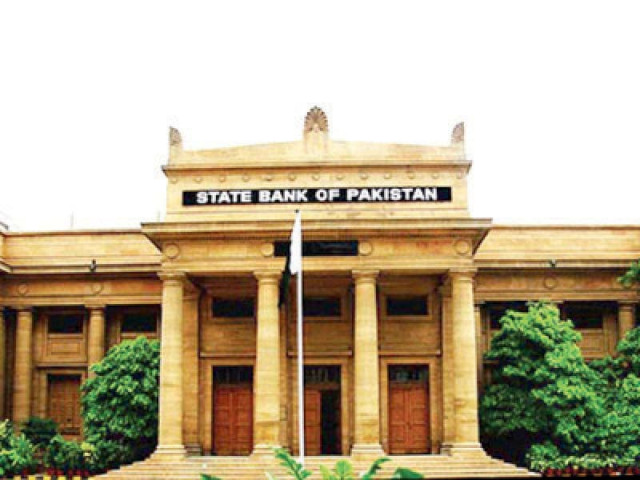SBP buys dollars to offset shortfall
Pakistan receives only $9.7b in foreign loans due to poor credit ratings

Pakistan received $9.7 billion in foreign loans, or a little over half of the annual estimate, in the first nine months of the current fiscal year, as the government could not convince the international credit rating agencies to upgrade the country’s junk rating.
The current fiscal year may end without any major issuance of sovereign international bonds in western markets and acquiring new foreign commercial loans due to the poor credit ratings despite “successfully” completing the International Monetary Fund (IMF) programme.
The Economic Affairs Division and the State Bank of Pakistan (SBP) data showed that Pakistan secured only $9.7 billion in foreign loans during the first nine months of the current fiscal year. The data comprised $6.8 billion worth of lending reported by the economic affairs ministry and $2.9 billion reported by the central bank.
Pakistan received those loans in the shape of budget and balance of payments’ support as well as project financing. But the gross foreign exchange reserves held by the central bank remained at $8 billion despite purchase of billions of dollars from the domestic market.
The reserves stood firm at $8 billion even after making a $1 billion Eurobond repayment in the current month as the central bank increased dollar purchases from the domestic market.
For the current fiscal year, the government had expected to receive over $18 billion from foreign creditors to meet its external financing needs. But it could not be able to float Eurobonds and obtain fresh foreign commercial loans, thanks to the poor credit ratings and high cost of borrowing.
Finance Minister Muhammad Aurangzeb said on Tuesday that Pakistan would be able to secure foreign commercial loans in the next fiscal year.
He hoped that Pakistan would float $250 million to $300 million worth of Panda bonds in Chinese markets during the current year.
Rating agencies were looking for sustainability, said the minister during his speech at the Islamabad Leaders Conference on Tuesday. It was his first public appearance after returning from Washington. The finance minister said that Pakistan had been complemented for successfully completing the IMF programme.
However, this success has not translated into any improvement in the country’s credit ratings.
Aurangzeb held meetings in Washington with the three international rating agencies that had assigned junk ratings to Pakistan, declaring its debt highly risky.
The improvement in ratings is critical to the finance minister’s plan to raise funds in the next fiscal year. Aurangzeb said on Tuesday that his plan to steer Pakistan out of the economic crisis revolved around increasing exports, foreign direct investment and raising debt.
The government received only $204 million from foreign lenders in March 2024. The shortfall in foreign inflows was offset by dollar purchases from the local market, which kept high the price of the greenback.
The Asian Development Bank gave only $657 million in nine months, accounting for 32% of the annual estimate of $2.1 billion. The Ministry of Finance and the Ministry of Economic Affairs had set unrealistic targets at the time of budget announcement.
The country has not been successful in getting the Geneva pledges fully materialised for the victims of 2022 floods. The World Bank was the largest lender after the IMF as it disbursed $1.43 billion in nine months. The IMF has given $1.9 billion out of a $3 billion loan package. Its last loan tranche of $1.1 billion is expected to be released next week. Pakistan has budgeted to receive $2.3 billion from the World Bank this fiscal year and the authorities hope to get at least $2 billion.
The Islamic Development Bank has so far disbursed only $200 million this year of the annual estimate of $500 million. Although Pakistan has fully tapped the budgeted $600 million Saudi oil facility, it did not receive any fresh funds last month too.
The annual budget estimate for commercial loans stands at $4.5 billion while efforts to secure at least $600 million from China have not borne fruit. China has linked its financing with a prior settlement plan for around Rs490 billion that Pakistan owes to Chinese power plants.
Published in The Express Tribune, April 24th, 2024.
Like Business on Facebook, follow @TribuneBiz on Twitter to stay informed and join in the conversation.



















COMMENTS
Comments are moderated and generally will be posted if they are on-topic and not abusive.
For more information, please see our Comments FAQ